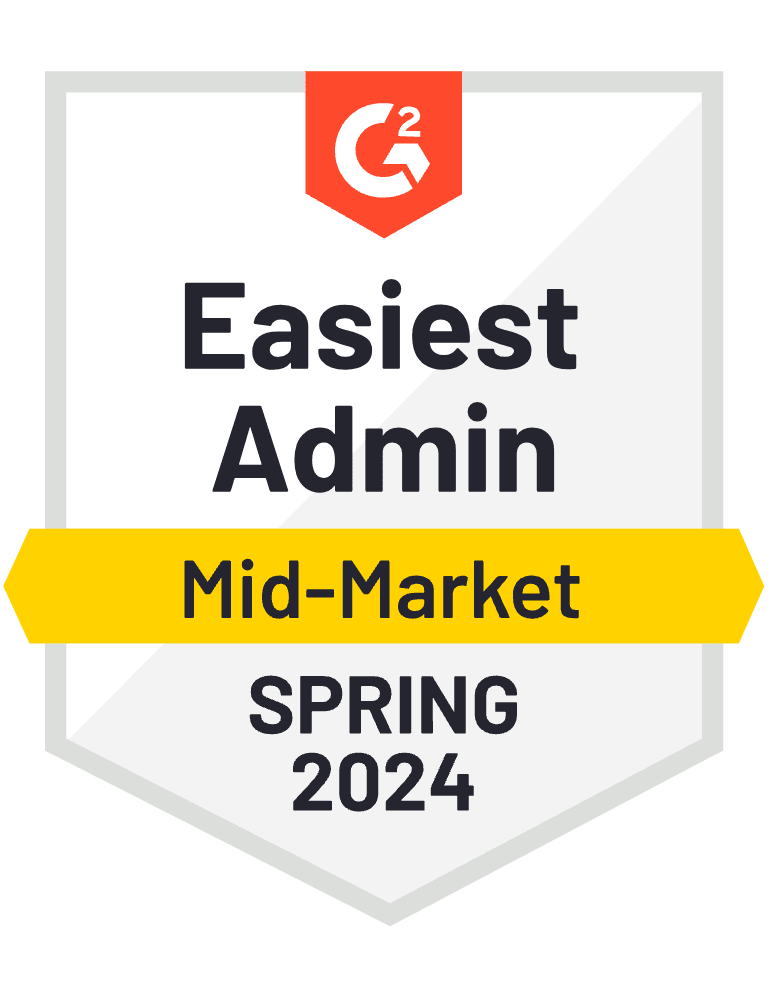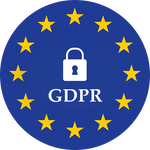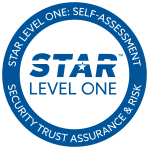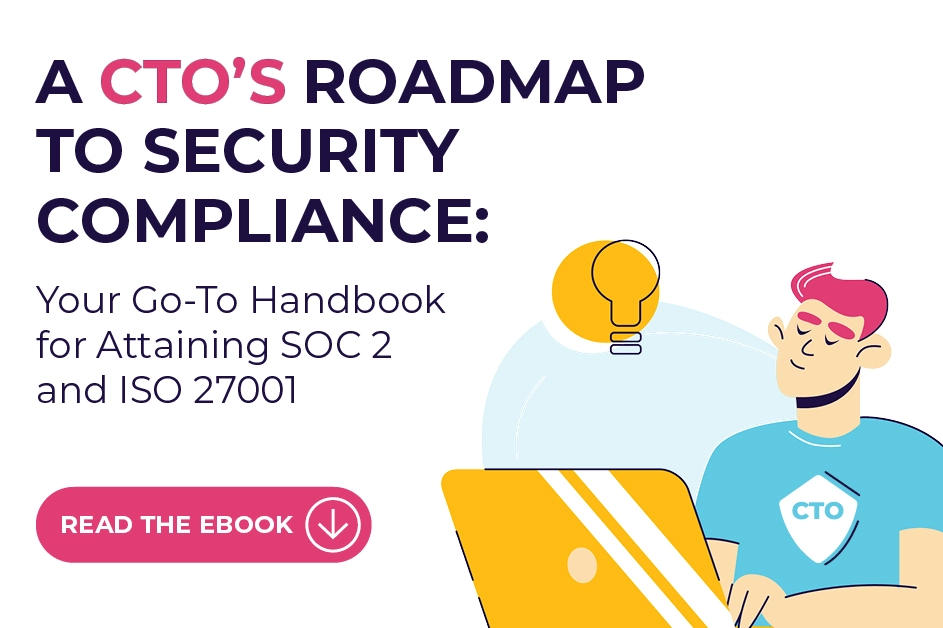Did someone say ‘compliance framework’? Yes, literally everybody. And by ‘everybody,’ we mean everyone from clients to potential investors. Security compliance isn’t just the new buzzword of the year nor a novelty that separates the greats from the average. In the modern business landscape, compliance is not just a buzzword but a fundamental requirement, essential for evaluating a startup’s capability to offer risk-free, reliable, and trustworthy services.
But there’s a catch.
As it grows in significance, it also grows in complexity – often deterring startups from investing in the proper compliance framework. This is why we’ve created this quick, go-to, super non-intimidating guide to navigating compliance frameworks for startups, complete with everything you need to know about the most common compliance frameworks and how they may apply to your startup.
Let’s get into it.

Start(up) your Engines: The Importance of Compliance for Startups
There’s a common misconception amongst some founders that security, trust, and compliance should be reserved for the later stages of their business. However, this couldn’t be further from the truth. Security, trust, and compliance are foundational pillars of your organization that cannot be ignored. Here’s why businesses (especially startups) must prioritize it from day one.
Builds Trust
Compliance certifications or attestations show that you’re committed to the security posture of your business. It builds the needed level of trust between internal teams, upper management, third-party vendors, and clients and proves that you have prioritized client privacy and information security. It shows a commitment to industry standards and regulatory requirements right out the gate – no gray area (or red flags) included.
Access to Funding
Venture capital funding is a critical part of the startup journey, and non-compliance can hinder a startup’s ability to acquire the resources necessary for growth and expansion. Not only does it limit their ability to sign greater deals and attract bigger clients, but financial institutions and investors often require compliance as a condition for funding.
Boost Operational Efficiency
Founders are familiar with the fact that startups require them to juggle multiple responsibilities and tasks simultaneously. By adhering to a compliance framework, startups can rest assured that they aren’t compromising their security in between the madness. In addition, frameworks help startups implement industry best practices, ultimately enhancing your startup’s operational efficiency and cutting waste. Adhering to regulations prevents duplicated efforts, reduces errors, and guarantees efficient and effective processes.
Cost Savings
Early adoption of compliance frameworks can also lead to significant cost savings. By integrating compliance measures from the outset, startups can avoid the hefty fines and penalties associated with non-compliance, as well as the costs of retrofitting compliance measures at a later stage.
This is the part where we need to give a quick public service announcement: Yes, compliance can feel daunting and complex – especially when you’re a newbie to infosec and compliance without a designated compliance team. Fortunately, we’re here to help you grasp the basics, starting with the common compliance frameworks for startups.
Common Compliance Frameworks for Startups
SOC 2 Compliance for Startups
If you’re a SaaS startup, then this one’s for you! SOC 2 stands for Service Organization Controls 2 and is an independent audit evaluating how well a service organization safeguards data like a cloud provider. In the compliance world, a lot of jargon can easily feel like navigating a foreign language.
So, let’s translate.
When speaking of SOC 2, you have a report verifying that a service organization’s security controls meet industry standards. To become SOC 2 compliant, an independent auditor examines your security policies and procedures to ensure sensitive data is appropriately protected.
There are two types of SOC 2 reports. Type I reports test the design of a company’s security controls at a point in time. Type II reports test the effectiveness of security controls over a period of time. Type II is considered more comprehensive and is preferred by most organizations.
It’s important to note that when it comes to SOC 2 compliance, there is no certification process. Instead, to achieve SOC 2 compliance, organizations must establish and follow strict security policies that align with the Trust Services Criteria developed by the American Institute of Certified Public Accountants (AICPA), namely Security, Availability, Processing Integrity, Confidentiality, and Privacy. This includes things like conducting risk assessments, establishing a security management program, and ensuring data privacy. Compliance requires creating security standards, implementing controls, monitoring systems, and remediating any issues.
While the process can be complex, SOC 2 compliance gives customers confidence their data will be kept private and secure.
And remember, you’re not in it alone. We can go on about the ins and outs of SOC 2 compliance forever, and we have. Want a deeper dive? Here are some of our top resources on SOC 2 compliance for startups:
A Guide to SOC 2
SOC 2 in Under 2
SOC 2 for Startups
If you’re not a big fan of independent learning, why not join our free SOC 2 academy?
ISO 27001 Compliance for Startups
Next up, we have ISO 27001, often regarded as the leading global standard in information security. Here’s why. An ISO 27001 certification is internationally recognized as the highest standard in information security.
It centers around Information Security Management System (ISMS) requirements, which involve all your policies, practices, personnel, documentation, and controls. It then evaluates your ISMS and compares it to the standard’s three core pillars of information security: Confidentiality, Integrity, and Availability.
In part, where the customer is based will determine the preference for ISO 27001 above other frameworks. Why? Well, although SOC 2 and ISO 2700 hold many similarities, certain markets still prefer the one over the other.
For example, in the US market, many businesses want the reassurance that you are SOC 2 compliant, as it’s widely recognized in the US. But what if you want to scale? When considering a compliance framework, it’s essential to plan proactively, especially as a startup.
If you are planning on scaling, an internationally recognized compliance framework might be more beneficial in the long run.
While you consider the above, we’ve stockpiled some of our most relevant resources to help you on your ISO 27001 journey.
ISO 27001 for Startups
ISO 27001 vs SOC 2: What’s the Difference?
ISO 27001 Requirements: Everything You Need to Get Certified
PCI DSS Compliance for Startups
PCI DSS stands for The Payment Card Industry Data Security Standard, a standard that determines a baseline level of protection for customer payment data.
There are 12 security standards/requirements within PCI DSS.
These 12 requirements set the minimum data security standard. At first glance, it may not seem like a lot, but within these 12 requirements lay a world of technical and operational standards businesses must follow to secure and protect credit card data during and after purchase. Did we just say must?
This is where things get a bit different. PCI DSS is a regulatory framework, meaning that if your startup handles credit card or payment information, you’re subject to mandatory compliance. Fortunately, with frameworks like ISO 27001 or SOC 2 laying the foundation for data security, many startups have to manage multiple frameworks simultaneously.
P.S. PCI DSS compliance levels vary based on the volume of transactions a business processes annually, with more stringent requirements for higher volumes.
Sounds like work. You’re right!
That’s why we exist. We know you already have a million things on your plate as a startup – security compliance doesn’t have to be one of them! Automate your compliance journey from the beginning without compromising your time, money, or freedom!
SECURITY COMPLIANCE FOR STARTUPS
Startups, Need to Get Compliant but Don’t Know Where to Start?
No need to fret about what you’re doing wrong! We’ve got your back. At Scytale, we help you get (and stay) compliant without breaking a sweat!















